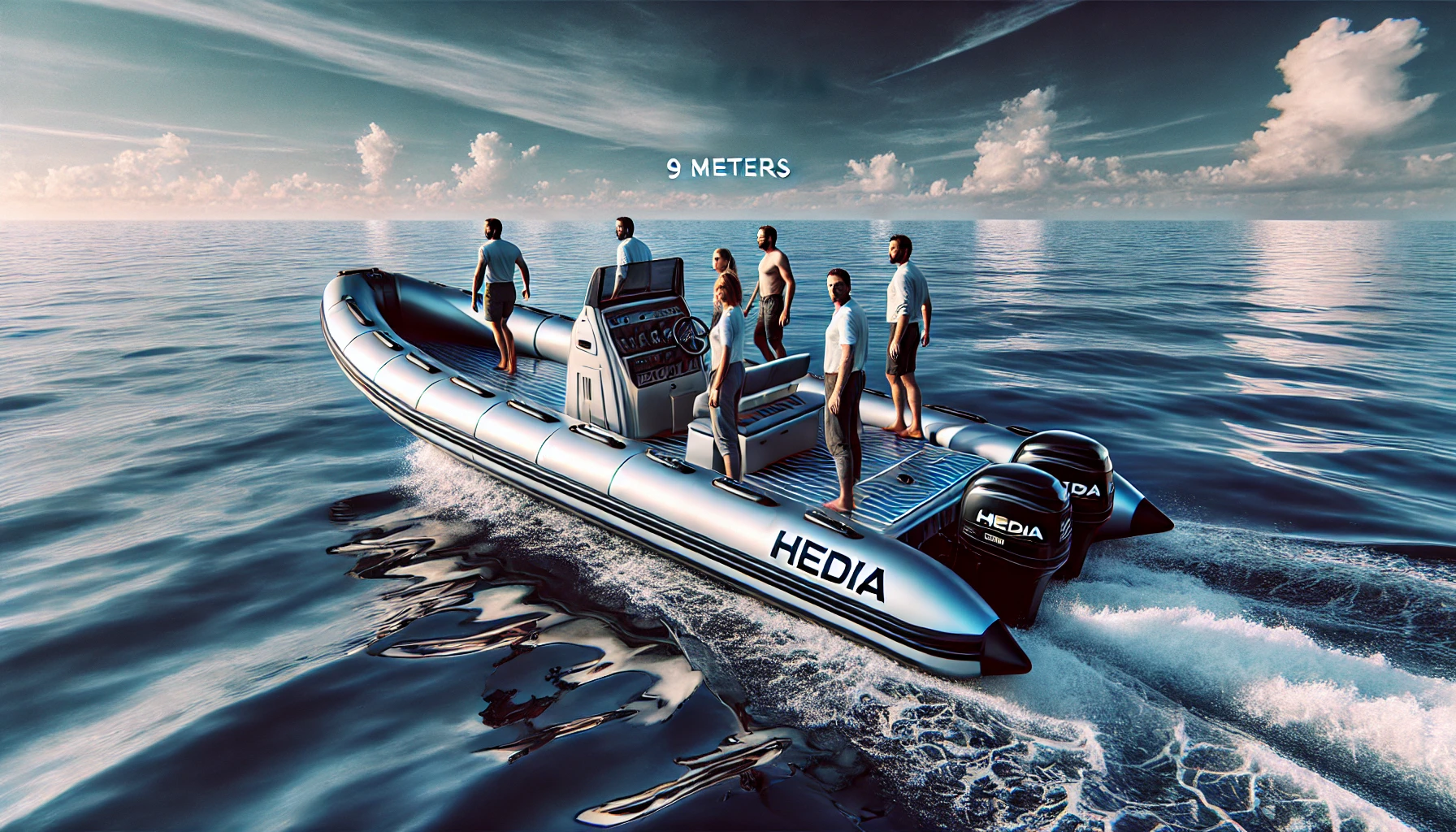How Long Do RIB Boats Last?
Rigid Inflatable Boats (RIBs) are known for their exceptional performance, durability, and versatility, making them a popular choice for recreational boaters, rescue teams, and even military operations. But like any major investment, potential boat owners often wonder: How long do RIB boats last? In this blog post, we'll take a deep dive into the lifespan of a RIB boat, factors that influence its longevity, and what you can do to maximize its use.

Understanding the Lifespan of a RIB Boat
A RIB boat combines a rigid hull with inflatable tubes, which is why they offer such great stability, buoyancy, and comfort on the water. The longevity of a RIB boat depends on several factors, including the materials used for the hull and tubes, how well the boat is maintained, and the conditions under which it is used.
Generally speaking, a well-maintained RIB boat can last anywhere from 10 to 20 years or more. However, the longevity of the boat’s inflatable tubes can vary significantly based on their material. For example, Hypalon (a synthetic rubber) and PVC (Polyvinyl Chloride) are the two most common materials used for the inflatable tubes. Hypalon is known for its superior resistance to UV rays, ozone, and abrasion, which generally makes Hypalon tubes last longer—up to 10-15 years or more. On the other hand, PVC tubes may need replacement sooner, often within 5-10 years, especially if exposed to harsh environmental conditions.
The Role of the Hull in a RIB Boat’s Lifespan
The hull of a RIB boat plays a crucial role in determining its overall longevity. Most RIB boats feature either a fiberglass or aluminum hull. Both materials have their advantages, but they also affect the lifespan differently.
* Fiberglass Hulls: Fiberglass is a common material for RIB hulls and offers great strength and flexibility. With proper care, fiberglass hulls can last for decades. Regular cleaning, inspection, and repair of any cracks or damage are essential for maintaining the hull’s integrity.
* Aluminum Hulls: An aluminum RIB boat typically has a longer lifespan than a fiberglass hull due to its superior resistance to corrosion. Aluminum RIBs can last 20+ years with minimal maintenance if they are properly cleaned and stored. Aluminum is resistant to saltwater corrosion and other environmental factors, making it an excellent choice for boaters in coastal or rough conditions. An aluminum hull can endure wear and tear better than fiberglass, particularly in more rugged conditions or for professional use.
Maintenance: The Key to Prolonging a RIB Boat’s Life
Proper maintenance is one of the most important factors in determining how long a RIB boat will last. Regular maintenance not only keeps the boat in good working condition but also helps prevent costly repairs or premature replacement. Here are a few essential maintenance tips to extend the lifespan of your RIB boat:
* Clean Regularly: Saltwater, dirt, and algae can all contribute to wear and tear on your RIB. Make sure to rinse the boat thoroughly after each use, especially if it’s been in saltwater. Pay close attention to the inflatable tubes and hull, ensuring they are free of debris.
* Check for Leaks and Damage: Regularly inspect the inflatable tubes for signs of wear, punctures, or leaks. A small puncture in a tube can cause big problems if left unchecked. Similarly, inspect the hull for any cracks or dents that could compromise the boat's safety and performance.
* Storage: Storing your RIB boat properly is essential for its longevity. Always store the boat out of direct sunlight and away from extreme weather conditions. For inflatable RIB boats, storing the tubes deflated can prevent unnecessary stress on the materials, prolonging their lifespan.
* Engine Maintenance: Like any boat, the engine of a RIB requires regular servicing. Following the manufacturer’s guidelines for oil changes, cooling system checks, and fuel inspections will help ensure your boat’s engine runs smoothly for years.
How Use Affects a RIB Boat’s Lifespan
How you use your RIB boat also has a significant impact on its lifespan. Boats that are frequently exposed to rough conditions or heavy loads will experience more wear and tear. For example:
* Rough Waters: Constant use in rough waters, high-speed operations, or navigating through shallow, rocky areas can cause significant strain on both the hull and the inflatable tubes. If you plan to use your boat in tough conditions regularly, opting for an aluminum RIB boat might be a wise choice. The aluminum hull is more resilient to impacts and abrasions.
* Commercial Use: If you're using your RIB boat for commercial purposes, such as rescue operations, fishing, or transport, expect to perform more frequent maintenance. Commercial RIB boats may experience more wear due to the higher demands placed on them.
* Storage and Exposure: Leaving your boat exposed to the elements for prolonged periods—especially in areas with intense UV rays, extreme heat, or freezing temperatures—can shorten its lifespan. Using a cover or storing the boat indoors during the off-season can help prevent this kind of damage.
Choosing the Right RIB Boat Manufacturer
When it comes to durability and longevity, the quality of the manufacturer plays a major role. Choosing a reputable RIB boat manufacturer with a solid track record in producing high-quality boats can ensure you get a product designed for durability and long-term performance. Look for manufacturers who use top-quality materials, like Hypalon for the inflatable tubes and strong fiberglass or aluminum for the hull.
Furthermore, a reliable RIB boat manufacturer will provide clear guidance on proper maintenance, warranty support, and replacement parts, ensuring that you can get the most out of your boat over the years.
Conclusion
In conclusion, RIB boats can last a long time—typically between 10 to 20 years or more—depending on how well they are maintained and the materials used. If you want your RIB to last as long as possible, focus on proper care and regular maintenance. Aluminum RIB boats, in particular, offer a longer lifespan due to their superior durability and resistance to corrosion.
Whether you’re using your RIB boat for leisurely boating, professional work, or offshore adventures, understanding the factors that affect its lifespan can help you make the right choices for your boat and your boating needs. With the right care, your RIB boat can provide you with many years of safe and enjoyable rides on the water.


